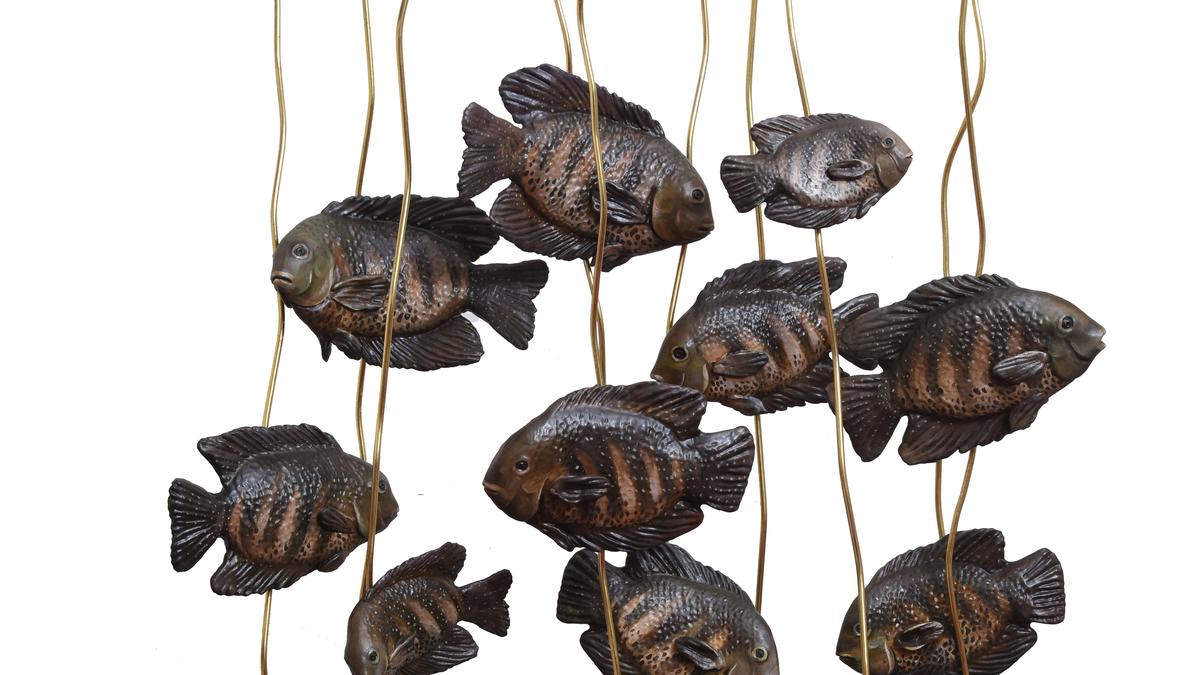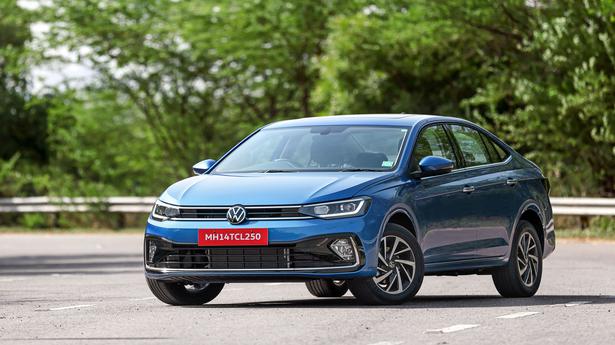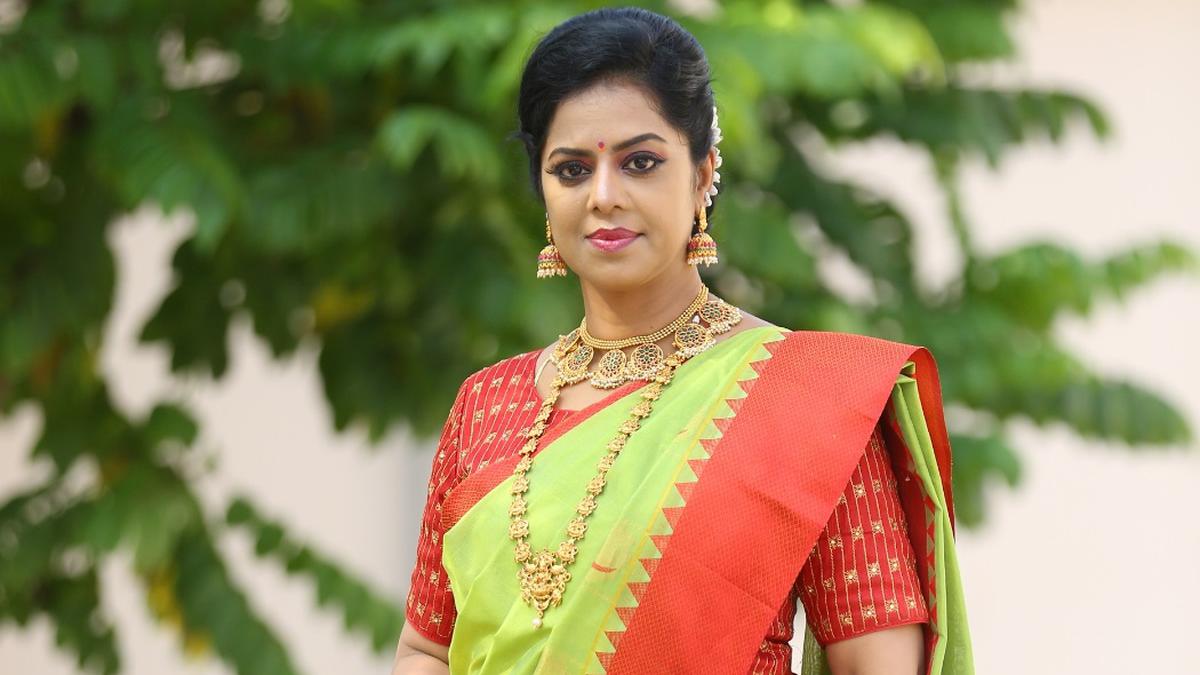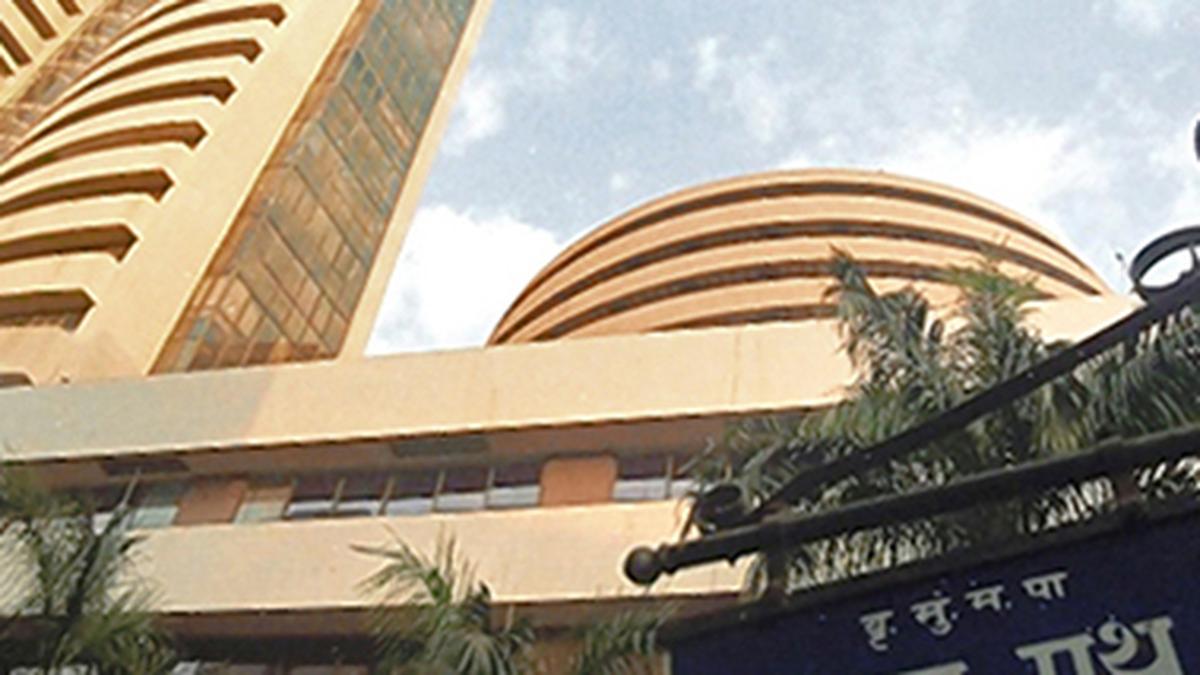Sculpture of Karimeen (pearl spot), an original work of Bronze Age Sculpture Foundry
| Photo Credit: Special Arrangement
Mariya Chedathi and her Cow, a small sculpture in mixed media with a glazed ceramic finish, of an elderly woman attired in the traditional chatta and mundu sits on the shelf of Bronze Age, a recently-opened sculpture foundry at Girinagar in Kochi. On another rack, a herd of impalas have been captured midflight in a stylised bronze sculpture.
Sculptures of varying sizes, materials and moods fill up the space; with each piece carrying a little descriptive note. While one finds the gallery’s original hand-crafted sculptures, it also has a range of artifacts (replicas of famous sculptures, such as ‘The Thinker’ by French sculptor by Auguste Rodin in Paris to name one). An entire section has been dedicated to bronzes of Gods and Goddesses, miniature gold-plated bronze idols and abstracts in mixed media.
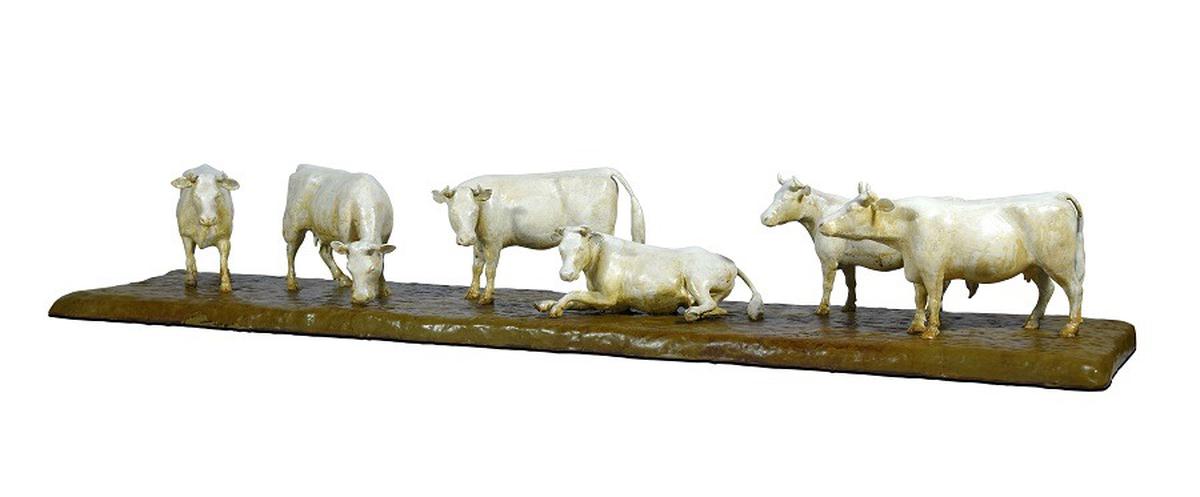
Herd of cows, a mixed media sculpture at Bronze Age
| Photo Credit:
Special Arrangement
Bronze Age straddles two worlds: while it offers the ambience of a gallery where sculptures are revered as works of art, it also serves as a showroom where you can pick up a sculpture that resonates with your design aesthetic. Renny Jacob, founder of the Indian Cocoa Group, which owns Bronze Age, describes it as “a library of ideas, an evolving concept where the team is constantly tinkering with new materials and mediums.”
Inspired by a foundry he visited in Goa, where large, life-size sculptures could be commissioned for domestic and public spaces, Renny felt the need to create a similar space in the city which blended art with commercial viability. “We are not artists, we act as intermediaries, providing a choice for the discerning customer,” says Renny for whom sculpture is a passion. He researched the concept for three years before launching the gallery.
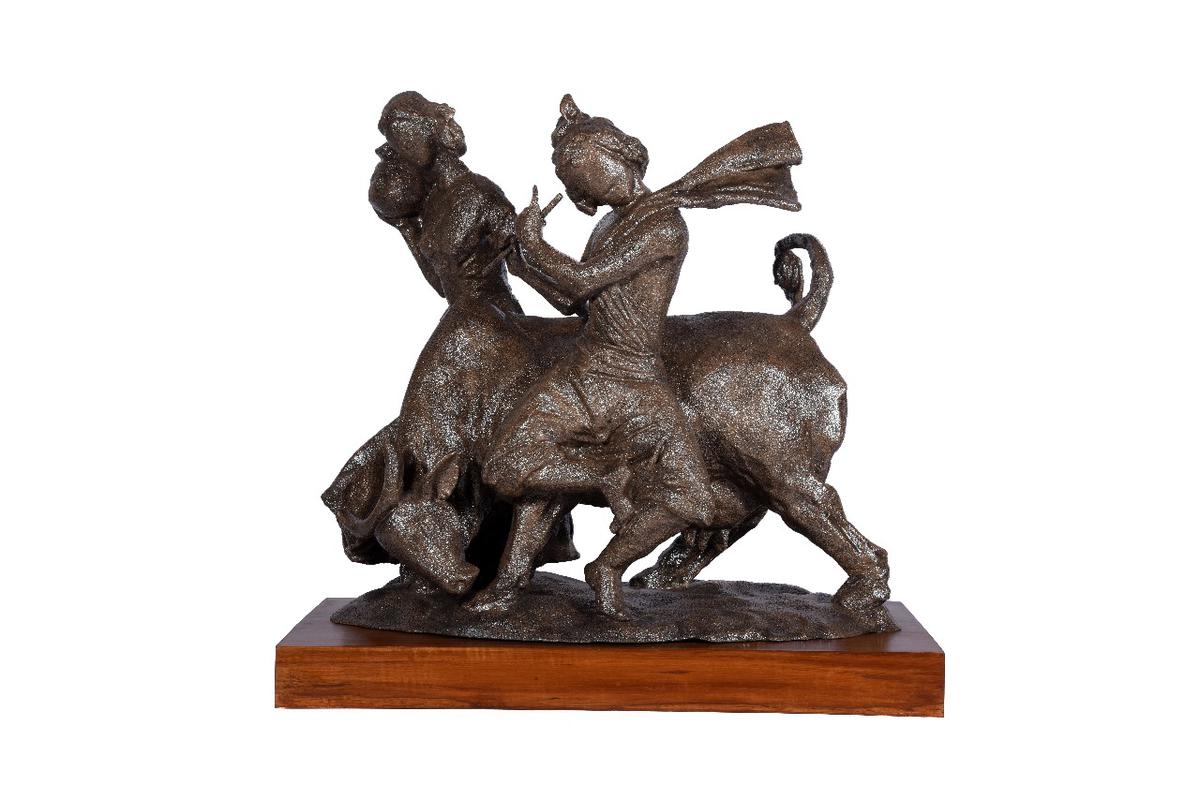
An original sculpture of Radha and Krishna at Bronze Age
| Photo Credit:
Special Arrangement
“We want to make art more accessible to people. To evolve an ecosystem where one could think of placing a large-ish sculpture in their living space, as an expression of themselves,” Renny says.
The Kochi Muziris Biennale has altered the way people perceive art and the climate for art in the city is just right, adds Renny.
While curating a collection, the focus will be on sculptures that showcase the Kerala identity, asserts Renny. “We have our own history and heritage to showcase. The performing arts, the food, cultural practices…why not have sculptures that represent these?” he asks. A multimedia sculpture (in wood and metal) depicts the karimeen (Pearl Spot fish) swimming in an open tank. This synthetic hand-painted sculpture is modern, but it showcases a unique Kerala idiom, the karimeen, he points out. A sculpture of a group of men performing the panchavadyam (percussion ensemble) is another example. “Hotels and commercial/public spaces can have scaled up sculptures that showcase the Kerala sensibility. It would tell a story about our place, and where we come from,” he adds.
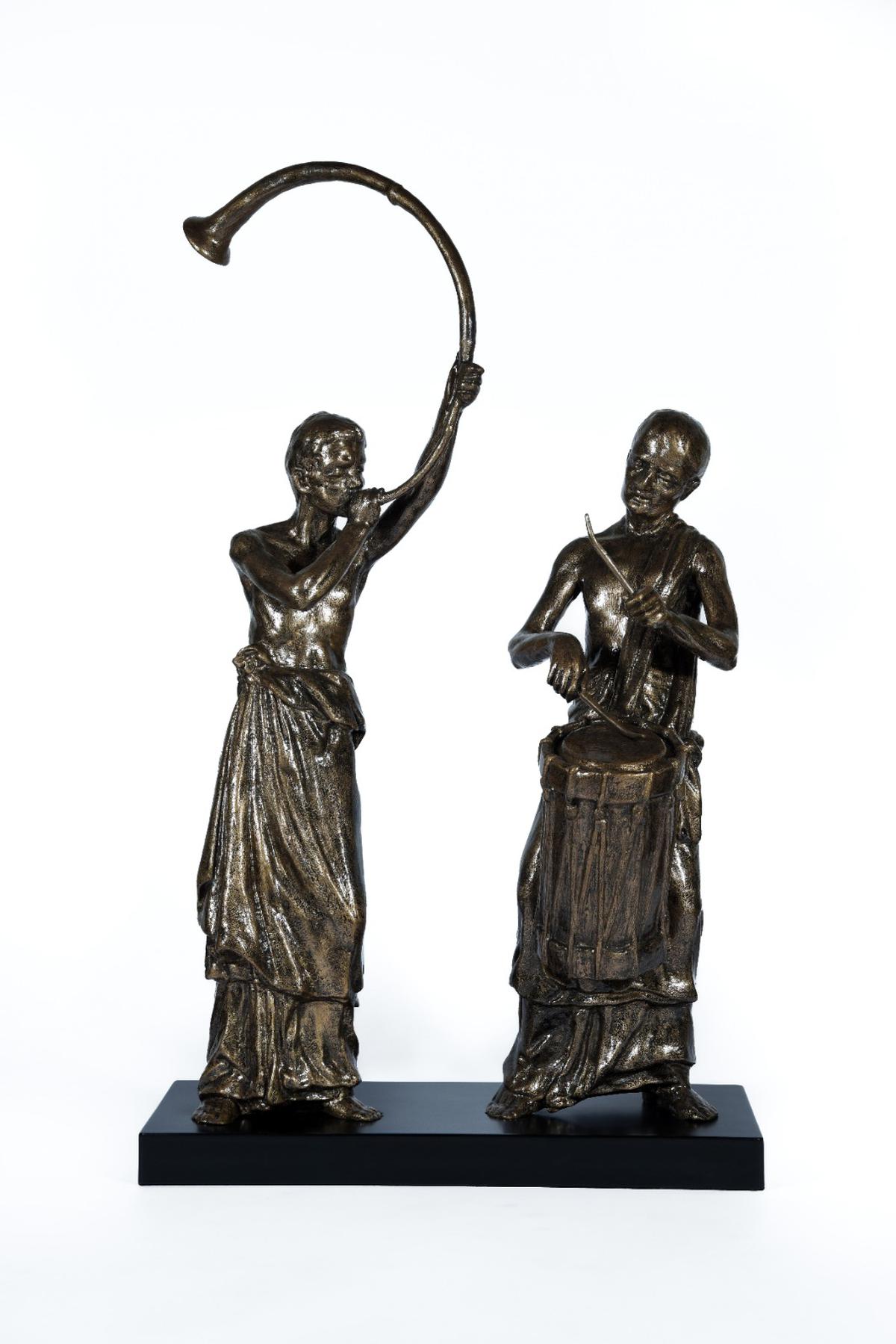
An original sculpture of two performers in a panchavadyam at Bronze Age
| Photo Credit:
Special Arrangement
“Each piece at the gallery tells a story,” says Neenu Varghese Joe, who handles the operations at Bronze Age. “A sculpture at home, in the living room, lends character and emotion to the space. It can be a conversation starter,” she adds. Bronze Age has a team of artists who work on sculptures based on the ideas provided by the design team. “We are constantly trying new ideas and have a pool of artists from Kerala who execute them,” she adds.
The foundry in Kanjirappally includes a clay studio, a centre to cast and mould, a metallisation studio and a micro studio where the finer touches are given.
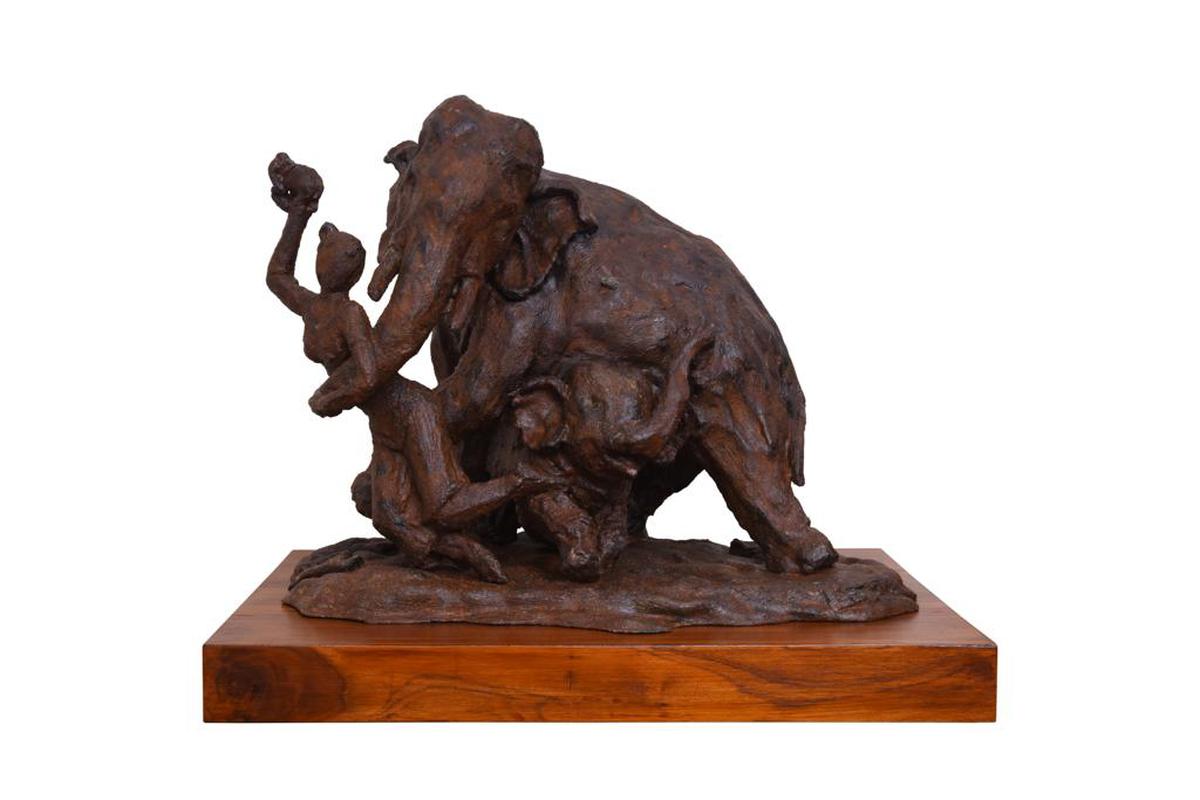
‘Elephant and Lady’, an original work at Bronze Age
| Photo Credit:
Special Arrangement
The sculptures come in a variety of finishes. While some are glossy, some look ancient. “These are made of aged bronze,” says Sujaya CP, curator of the gallery. “We use techniques such as patination, where the process of rusting is accelerated by using certain chemicals. This gives some sculptures an aged-bronze texture. Depending on the theme and subject, the finish is decided,” she adds.
The gallery is also planning to introduce larger sculptures for outdoor spaces such as gardens and parks.
The collectibles here are priced upwards of ₹20,000.


